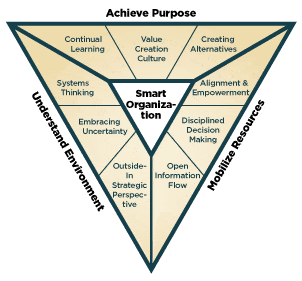Those who lost out
Like many before it – Digital Equipment, NCR, Westinghouse, Motorola, Syntex, ATT, General Motors, etc. – Kodak has been put on corporate life support (bankruptcy). The world is watching to see if the company can be revived as a shadow of its former self, or whether it will die and donate any useful body parts, or even its corporate name, to help others succeed. In the corporate world, the sale of body parts is legal; Kodak is already busy selling its intellectual property portfolio to raise funds that might help revive it. Will this once-proud company return to vigorous health or become a Zombie?
In the short list above, Digital Equipment, innovator of the very successful VAX line of mini-computers, attempted to “milk its cash cow” rather than join the PC revolution, and lost its corporate life. NCR, formerly National Cash Register, was sold and integrated into others. Motorola almost bit the dust, when, after becoming the undisputed leader in analog cell phones, they continued to milk the cash while the world moved into the digital age. They lost the switch to digital to new competition and paid a big price to recover a position in the digital world.
Syntex invented birth control pills and several key drugs, but after what their strategic planners call “a random walk-through strategy” managed to get acquired by Roche, after which many parts were ejected. Westinghouse, a very strong innovation-based, industrial giant – the first commercial broadcasting company – sold off its great consumer brand, as well as other body parts, so now only the nuclear technology group of the original giant remains. AT&T, the telephone monopoly and creator of Bell Laboratories, once called a “national asset,” is gone as well: its name readopted by the regional phone company SBC. General Motors went through many severe illnesses, the latest requiring a national bailout to resuscitate it.
Now Kodak, a market leader for generations, which prided itself on superb quality, is desperately trying to shed atrophied parts and recover in some form. Will it make it?
The peril of an operational culture
Why does this happen over and over? Part of the answer is that as companies become successful they are forced to focus on operational excellence. They learn to operate at larger scales, maintain quality and beat the competition. As this happens, an operational culture takes over, which confuses operational excellence with entrepreneurial excellence. It is nearly impossible for them to return to the innovative and strategic cultures of the past. They develop habits that are counterproductive in strategy, such as enshrined top management falsely thinking that they are anointed to “call the shots” instead of invigorating the whole staff to continually search for new ways to create value. They become unwilling to experiment with new paths, partly because those paths threaten their existing business base and partly that, at inception, they cannot see how these new businesses can grow to the scale required to successfully replace large old business. Management becomes accustomed to stable business environments and is unwilling to embrace change and uncertainty.

Higher Performance Through Better Strategic Management
In our book, “The Smart Organization”, David Matheson and I introduced “Nine Principles of the Smart Organization,” which have proven to produce higher performance through better strategic management, as shown on the first page.
Kodak badly failed on the three principles on the left, Understanding the Environment. They needed more of an outside-in perspective, which begins with understanding how the customer situation is changing, how the basis of competition is changing, and then applies systems thinking to trace those changes back to the impact and opportunities for Kodak. It also means embracing uncertainty, knowing and accepting that you cannot predict the future, and vetting the nature of those uncertainties to determine the size and shape of an unpredictable future. And since that future is unpredictable, management must resist trying to “call the shots” but instead develop and manage a portfolio of innovations, many of which will fail, but some of which may become the business successes of tomorrow. It is rare for an established company to make this transition. As Niccolo Machiavelli understood:
“There is nothing more difficult to take in hand, more perilous to conduct, or more uncertain in its success, than to take the lead in the introduction of a new order of things. For the reformer has enemies in all those who profit by the old order, and only lukewarm defenders in all those who would profit by the new order, this lukewarmness arising partly from fear of their adversaries … and partly from the incredulity of mankind, who do not truly believe in anything new until they have had actual experience of it.”
References:
David and Jim Matheson, The Smart Organization, Harvard Business School Press, 1998.
David and James E. Matheson, Smart Organizations Perform Better in Research, Technology Management, July-August 2001, pgs 49-54.



